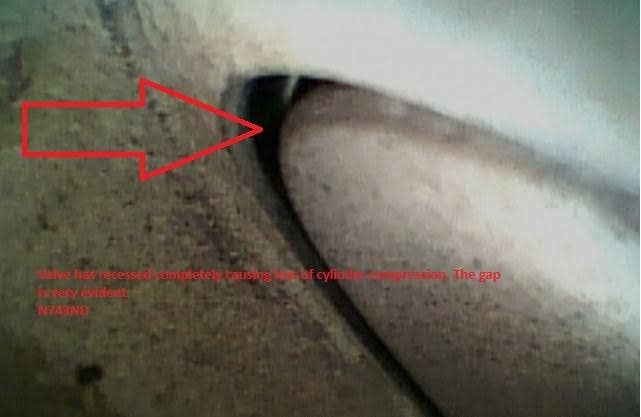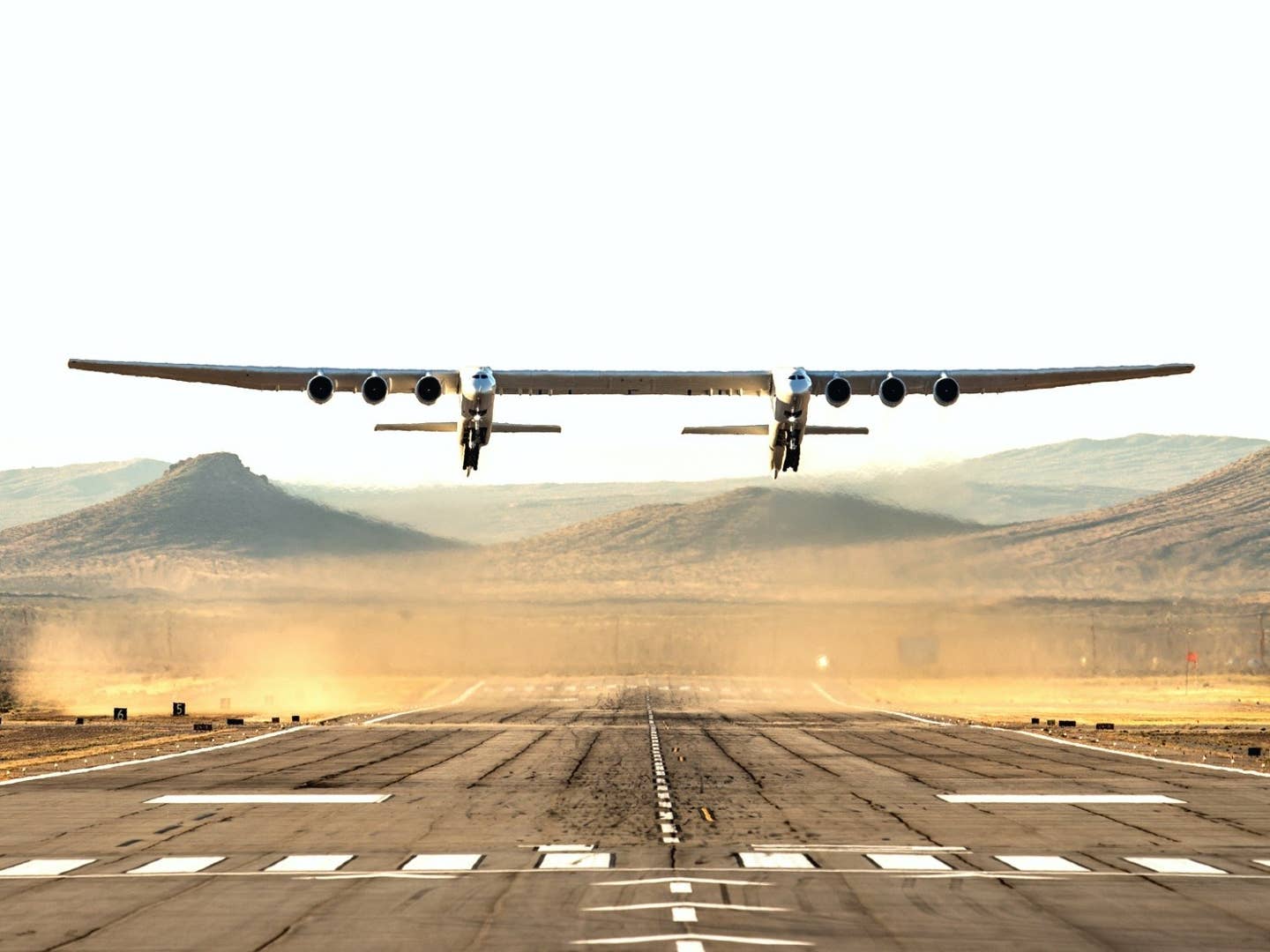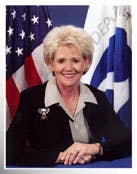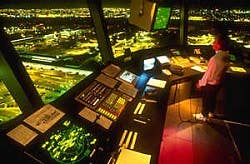FAA Defends Pilots?
The agency we occasionally love to hate told AVweb it’s looking out for GA interests as various security-inspired measures — including jeep-mounted anti-aircraft stinger missiles freshly redeployed this week around the capital — seemingly put the crosshairs on an already-targeted GA sector. FAA spokesman Greg Martin said the agency went to bat for GA in the implementation of the air defense identification zone (ADIZ) around Washington, D.C., and it’s working on becoming involved in the appeal process for airmen’s certificates suspended on orders from the Transportation Security Administration. Martin said there were (and presumably still are) other federal officials who would rather shut down GA in the Washington, D.C., area.
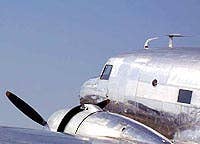
D.C. Stingers Target Them...
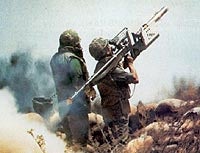 The agency we occasionally love to hate told AVweb it's looking out for GA interests as various security-inspired measures -- including jeep-mounted anti-aircraft stinger missiles freshly redeployed this week around the capital -- seemingly put the crosshairs on an already-targeted GA sector. FAA spokesman Greg Martin said the agency went to bat for GA in the implementation of the air defense identification zone (ADIZ) around Washington, D.C., and it's working on becoming involved in the appeal process for airmen's certificates suspended on orders from the Transportation Security Administration. Martin said there were (and presumably still are) other federal officials who would rather shut down GA in the Washington, D.C., area. "We're trying to do better but these are unique times and there's a bit of a learning curve associated with that," Martin said. But he said the FAA was successfully able to argue for the ADIZ, which, with its flight-planning and communications requirements, makes flying less convenient, yet still allows it to take place. He also noted that major aviation groups and the media got two days' notice of the implementation. As for the controversial TSA rule that can result in security-related certificate suspension and revocation, Martin said the FAA wants an advisory role in the appeal process. The rule gives all authority to the TSA to decide who can hold a certificate, but the FAA wants input on those decisions. "There is a recognition there has to be some impartiality in the appeal process," he said. Martin also confirmed that there have been no further certificate suspensions beyond the 11 foreign nationals, all of whom are barred from the U.S., originally targeted by the TSA rule.
The agency we occasionally love to hate told AVweb it's looking out for GA interests as various security-inspired measures -- including jeep-mounted anti-aircraft stinger missiles freshly redeployed this week around the capital -- seemingly put the crosshairs on an already-targeted GA sector. FAA spokesman Greg Martin said the agency went to bat for GA in the implementation of the air defense identification zone (ADIZ) around Washington, D.C., and it's working on becoming involved in the appeal process for airmen's certificates suspended on orders from the Transportation Security Administration. Martin said there were (and presumably still are) other federal officials who would rather shut down GA in the Washington, D.C., area. "We're trying to do better but these are unique times and there's a bit of a learning curve associated with that," Martin said. But he said the FAA was successfully able to argue for the ADIZ, which, with its flight-planning and communications requirements, makes flying less convenient, yet still allows it to take place. He also noted that major aviation groups and the media got two days' notice of the implementation. As for the controversial TSA rule that can result in security-related certificate suspension and revocation, Martin said the FAA wants an advisory role in the appeal process. The rule gives all authority to the TSA to decide who can hold a certificate, but the FAA wants input on those decisions. "There is a recognition there has to be some impartiality in the appeal process," he said. Martin also confirmed that there have been no further certificate suspensions beyond the 11 foreign nationals, all of whom are barred from the U.S., originally targeted by the TSA rule.
...As Safety Sacrificed For Security...
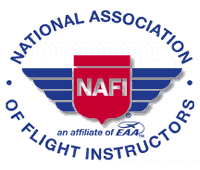 And while most us would stipulate that complicated flying is better than no flying at all, various alphabet groups are pointing out some rather glaring safety consequences of the ADIZ rules that require all aircraft be in constant contact with the Potomac TRACON while in the zone. Translation: Those operating out of non-towered airports can't very well use the normal UNICOM or common traffic advisory frequencies to exchange position reports. "That increases the risk of a midair collision at the non-towered airports within the ADIZ," said an observant AOPA news release. A herd of alphabet groups was invited to a meeting with TSA and FAA officials Monday. "Of critical concern is the conflict between security and safety concerns," said the AOPA news release that resulted. AOPA also wondered whether ATC could handle the increased load and if flight service can process the higher volume of flight plans. The National Association of Flight Instructors echoed the communications concerns and also noted that the flight restrictions have severely limited the space in which training aircraft can operate. "Sandwiched between the restricted zones in Washington and Camp David is little space to safely operate and accomplish flight training, since dozens of airplanes are trying to do the same thing," said Iwan Blom, chief pilot at Montgomery Aviation at Montgomery County Airport in Maryland.
And while most us would stipulate that complicated flying is better than no flying at all, various alphabet groups are pointing out some rather glaring safety consequences of the ADIZ rules that require all aircraft be in constant contact with the Potomac TRACON while in the zone. Translation: Those operating out of non-towered airports can't very well use the normal UNICOM or common traffic advisory frequencies to exchange position reports. "That increases the risk of a midair collision at the non-towered airports within the ADIZ," said an observant AOPA news release. A herd of alphabet groups was invited to a meeting with TSA and FAA officials Monday. "Of critical concern is the conflict between security and safety concerns," said the AOPA news release that resulted. AOPA also wondered whether ATC could handle the increased load and if flight service can process the higher volume of flight plans. The National Association of Flight Instructors echoed the communications concerns and also noted that the flight restrictions have severely limited the space in which training aircraft can operate. "Sandwiched between the restricted zones in Washington and Camp David is little space to safely operate and accomplish flight training, since dozens of airplanes are trying to do the same thing," said Iwan Blom, chief pilot at Montgomery Aviation at Montgomery County Airport in Maryland.
...DC-3 Hardest Hit, Again
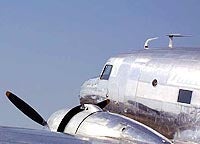 Of course, as has been the case since 9/11, pilots based at College Park Airport, Hyde Field and Potomac Airfield -- the so-called DC-3 -- continue to take a beating. They've already undergone rigorous security checks just to be able to use their home fields and now, once airborne inside the ADIZ, will have to stop at Lee Airport in Annapolis for further security checks. The rule applies even if the pilots have stayed aloft the entire flight. "Well-intentioned people at various headquarters have issued policy that is operationally dysfunctional," David Wartofsky, owner of Potomac Airfield, told The Washington Post. Pilot David Wills said the stop in Annapolis will add 90 minutes to his regular flights from an airport near Hagerstown to College Park. "Why do I have to go through a search when I've already been cleared?" he said. College Park Manager Lee Schiek told the Post the government is treating the DC-3 as "acceptable collateral damage in the fight against terrorism," but the FAA's Martin evaluated that same damage as "completely unacceptable."
Of course, as has been the case since 9/11, pilots based at College Park Airport, Hyde Field and Potomac Airfield -- the so-called DC-3 -- continue to take a beating. They've already undergone rigorous security checks just to be able to use their home fields and now, once airborne inside the ADIZ, will have to stop at Lee Airport in Annapolis for further security checks. The rule applies even if the pilots have stayed aloft the entire flight. "Well-intentioned people at various headquarters have issued policy that is operationally dysfunctional," David Wartofsky, owner of Potomac Airfield, told The Washington Post. Pilot David Wills said the stop in Annapolis will add 90 minutes to his regular flights from an airport near Hagerstown to College Park. "Why do I have to go through a search when I've already been cleared?" he said. College Park Manager Lee Schiek told the Post the government is treating the DC-3 as "acceptable collateral damage in the fight against terrorism," but the FAA's Martin evaluated that same damage as "completely unacceptable."

